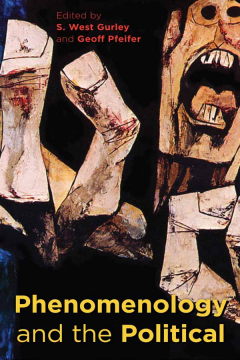
Additional Information
Book Details
Abstract
This timely volume brings together a diverse group of expert authors in order to investigate the question of phenomenology’s relation to the political. These authors take up a variety of themes and movements in contemporary political philosophy. Some of them put phenomenology in dialogue with feminism or philosophies of race, others with Marxism and psychoanalysis, while others look at phenomenology’s historical relation to politics. The book shows the ways in which phenomenology is either itself a form of political philosophy, or a useful method for thinking the political. It also explores the ways in which phenomenology falls short in the realm of the political. Ultimately, this collection serves as a starting point for a groundbreaking dialogue in the field about the nature of the relationship between phenomenology and the political. It is a must-read for anyone who is interested in phenomenology or contemporary social and political philosophy.
An amazingly timely update to phenomenology that shows how it can be socially critical and political! The contributions from scholars who work in post-coloniality, feminism, race, environmentalism, and political philosophy, with phenomenological methods (that often have to be newly crafted and defined), succeed together in creating a coherent, progressive, and original resource within so-called continental philosophy. This collection breaks new ground from multiple angles and is a wonderful introduction to and invention of progressive phenomenology.
Naomi Zack, Professor of Philosophy, University of Oregon
Geoffrey Pfeifer is Assistant Teaching Professor of Philosophy at Worcester Polytechnic Institute. He is the author of The New Materialism: Althusser, Badiou, and Žižek (2015).
S. West Gurley is Assistant Professor of Philosophy at Sam Houston State University. He is the author of Minding the Gap: What it is to Pay Attention Following the Collapse of the Subject-Object Distinction (2013).
An important collection of phenomenological engagements with the political, and political engagements with the methods and movement of phenomenology. These essays offer powerful responses to issues such as racism, environmental destruction, and capitalism, while raising fundamental questions about the meaning of the political. A valuable resource for anyone who seeks to understand the possibilities and limits of phenomenology for political theory.
Lisa Noelle Guenther, Associate Professor of Philosophy, Vanderbilt University
Where much of phenomenology has tended to bracket the political, here twenty cutting-edge philosophers turn their phenomenological gaze to some of the most pressing political issues of our day. Here we have a vital contribution to a new wave of publicly engaged philosophy.
Noëlle McAfee, Professor of Philosophy, Emory University
